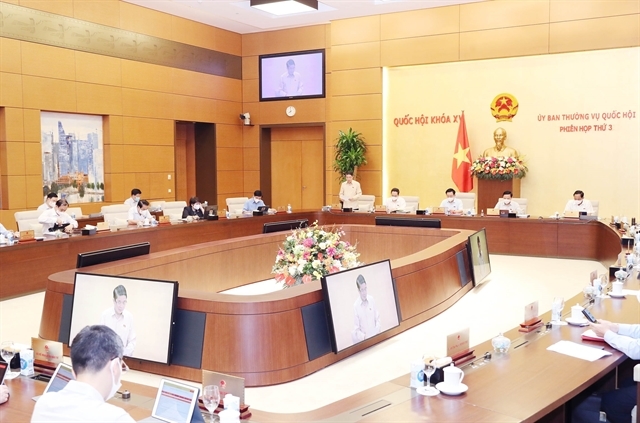 |
|
|
As of August 31, audit agencies nationwide had deployed 144 of the 211 planned audit teams, with 108 teams finishing their tasks and 83 audit reports issued. The audits were basically carried out on schedule and achieved the set targets, according to Chairman of the NA’s Committee for Financial and Budgetary Affairs Nguyễn Phú Cường.
The SAV discovered and proposed settlement of many violations related to the management and use of public finance, transferred five cases showing signs of criminal activity to the police for investigation, and proposed the amendment of 205 documents that don’t match legal regulations or reality.
It has also achieved encouraging outcomes in enhancing co-operation with foreign partners and performing many other tasks.
However, the Financial and Budgetary Affairs Committee also pointed out that the issuance of the 2021 plan on corruption prevention and control was slower than expected while the implementation of some duties for this year has yet to be fully analysed or reported.
It requested the SAV to boost IT application, build a database with sufficient and precise information for the audit sector, improve the quality of auditing activities, and reform working methods as required in the strategy for SAV development by 2030.
Regarding the orientations and tasks for 2022, the committee asked the SAV to build and issue solutions, farm out tasks, and specify a road map for performance right from the beginning of the year.
NA Chairman Vương Đình Huệ spoke highly of the SAV’s report and the committee’s verification report, asking for more attention to the mobilisation, allocation, and use of resources for the COVID-19 fight, along with the preparation, distribution, and disbursement of capital sources for basic construction at the central and local levels.
Also on Tuesday, the National Assembly Standing Committee discussed the amended Law on Cinematography.
The amended Law on Cinematography consisted of eight chapters and 52 articles, creating favourable conditions for organisations and individuals to participate in film production; supporting the release of Vietnamese films; attracting organisations and individuals to participate in the promotion of Vietnamese films, and applying advanced technology in film management.
The Standing Committee of Culture and Basic Education agreed with the Government's verification report, but asked to clarify the draft law on film supply of online services with servers located abroad.
The law stipulated two options for State-budget film production: assigning tasks or placing orders, and assigning tasks or placing an order or bidding.
The Government chose the first option while the Committee for Culture and Education chose the second option, adding that bidding would create equality between State-owned and private units.
However, bidding would not be applied for film production serving political tasks with low investment and short-time production requirements.
The draft law also stipulated two options for managing online film services, including inspection before and after a film is launched online. Post-inspection would be suitable as the country would not have enough capacity to check a huge number of films online.
However, the post-inspection created the risk of allowing films that violated Việt Nam’s law. Pre-inspection would help eliminate movies with bad content before they are widely released.
The committee proposed a third option, which would inspect films that have a negative influence on politics, national defence, security and foreign affairs before being released and inspect other kinds of films after they are released online.
Speaking at the session, National Assembly Chairman Huệ said cinematography activities must be adjusted in the digital environment and a legal corridor must be created for the development of national cinematography.
Source: VNS